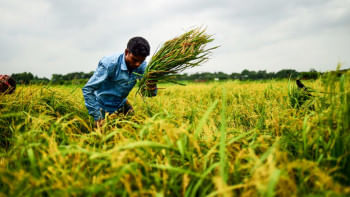A rising tide can sink all boats too

It is said that a rising tide lifts all boats. It suggests that improvements in the general economy can benefit all participants in that economy. Although high-income earners stand to gain more from an improved economy, the effect trickles down to everyone eventually. But this theory comes with a caveat in present-day Bangladesh: a rising tide can sink all boats, too. Think of it in terms of our extremely high cost of living. So sweeping is its impact that, in the absence of comprehensive regulatory efforts, not only does it increase the prices of all products/services, but it can also nullify the effects of small, isolated gains in price control.
A recent report by this daily offers an example of the all-encompassing effects of this cost-of-living crisis. It shows how retail vendors in the capital, despite getting green papaya at low prices at the wholesale level, are being "forced" to sell it at high prices. After tracking its journey from Manikganj's Singair upazila to Dhaka's Kazipara, our reporters found that the price of one kilo of papaya had more than tripled – from Tk 7 to Tk 25 – during the 25-kilometre transit, after changing hands three times. It is at the retail level that the price was seen to shoot up, with the vendors buying one kilo at Tk 8.50 but selling it at Tk 25. These figures may vary from place to place, of course. But you get an idea of how prices increase sometimes.
The vendors may be the guilty party in this case, but there are transport expenses to be paid and bribes to be given. In the end, however, their motivation for higher profits is the same as the motivation of customers for lower prices: staying afloat in the rising tide covering the costs of everything – from every essential item in the market, to the utilities, to transport fares, to healthcare, to education, the list goes on. As one vendor said: "Even five years ago, we did not need to make such a profit as daily expenses were not so high. But these days, even if I buy the papayas for Tk 2 per kilo, I will not be able to sell them for under Tk 15." He then added: "My family solely depends on my income, and if I cannot earn Tk 1,000 a day, I will fail to put food on my table and ensure my children's schooling."
Such small-scale vendors are, however, small fries in a sea of sharks that are actually responsible for today's cost-of-living crisis. Big importers, hoarders, corrupt policymakers, bureaucrats. They are the reason why the downward trend in the winter kitchen market doesn't feel like a victory, with the price of everything else stuck at pre-winter levels. Can we expect increased food production or imports to bring relief if a supportive environment is not created? Can we expect the consumer market to stabilise without an effective oversight? Can inflation be outpaced without higher wages/incomes across the board?
We urge the government to take the high cost of living with the urgency that it deserves, and form a comprehensive plan to tackle it through necessary policies and interventions.


 For all latest news, follow The Daily Star's Google News channel.
For all latest news, follow The Daily Star's Google News channel. 








Comments